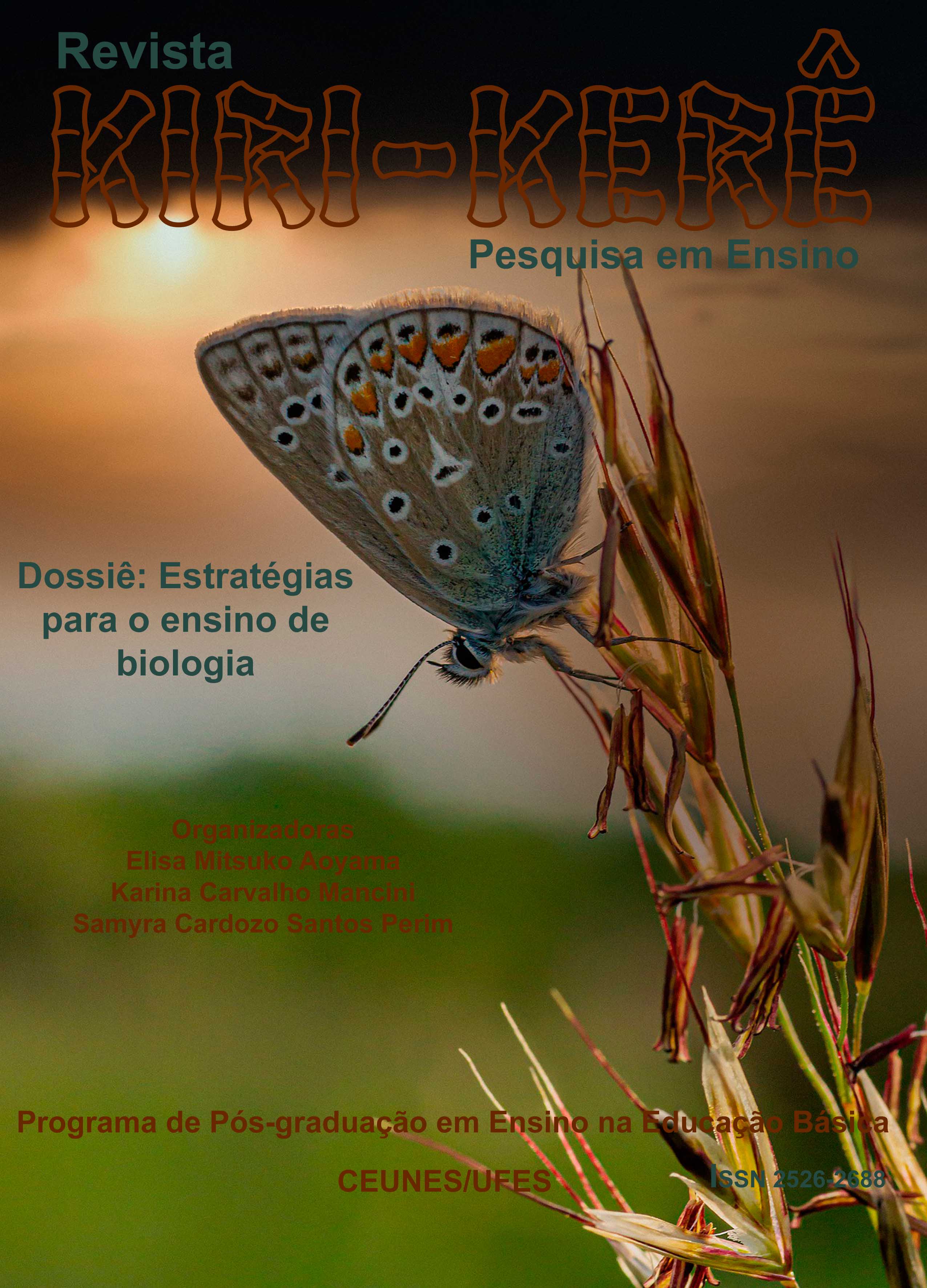A proposed investigative didactic sequence to unravel the mysteries of acquired human immunodeficiency
DOI:
https://doi.org/10.47456/krkr.v1i13.36529Keywords:
immunology; HIV; education; teaching; biologyAbstract
Immunology was one of the scientific areas that grew the most in Brazil in the 1990s. However, teaching immunology has proved quite challenging for basic education teachers because it addresses abstract subjects difficult for students to understand. From this perspective, there is a significant concern with developing diverse methodologies to help teachers with the immunology subject in high school. One of the subjects that raises considerable interest among students is HIV/AIDS. Thus, using this curiosity, an investigative didactic sequence was proposed that deals with the HIV/AIDS subject composed of four stages and developed in groups. The first step consists in presenting the problem through a motivating text where the groups should develop hypotheses to answer the question "Why and how does HIV/AIDS promote immunodeficiency?". In the second stage, there will be bibliographic research to test the hypotheses raised. In the third stage, the groups will present the results and show whether the hypotheses are correct or not. In the fourth stage, a round-table discussion will be held between the teacher and the students to discuss the knowledge built in the process and clarify any questions. Due to the COVID-19 pandemic and suspension of face-to-face classes, the didactic sequence was not applied to students. However, it is believed that this sequence can be an adequate tool to talk about HIV/AIDS more dynamically.
Downloads
References
BARRAL, A.; BARRAL-NETTO, M. Uma breve perspectiva da Imunologia no Brasil e na Bahia. Gazeta médica da Bahia, 2, 241-244, 2007.
BRASIL. Base Nacional Comum Curricular: educação é a base. Ministério da Educação, Brasília, DF, 2018. Disponível em: http://basenacionalcomum.mec.gov.br/images/BNCC_EI_EF_110518_versaofinal_site.pdf. Acesso em: 29. Nov. 2020.
BRASIL. Boletim Epidemiológico HIVAIDS 2019. Brasília, DF, p. 9, 2019a. Disponível em: http://www.aids.gov.br/pt-br/pub/2019/boletim-epidemiologico-de-hivaids-2019. Acesso em: 20 Nov. 2020.
BRASIL. Ministério da Saúde lança campanha para conter avanço de HIV em homens. Brasília, DF, 2019b. Disponível em: https://antigo.saude.gov.br/noticias/agencia-saude/45246-ministerio-da-saude-lanca-campanha-para-conter-avanco-de-hiv-em-homens. Acesso em: 20 Nov. 2020.
BRASIL. O que é HIV?. Ministério da Saúde, Departamento de Doenças Crônicas e Infecções Sexualmente Transmissíveis. Disponível em: <http://www.aids.gov.br/pt-br/publico-geral/o-que-e-hiv>. Acesso em: 13 Out. 2021.
FONSECA, R. D. Avaliação do conteúdo e da abordagem do tema Imunologia nos livros didáticos de Biologia do Ensino Médio e o possível impacto no processo de ensino/aprendizagem dos conceitos de Imunologia nos cursos de Ensino Superior. Monografia (Especialização em Ensino em Biociências e Saúde) – Instituto Oswaldo Cruz/FIOCRUZ. Rio de Janeiro, p. 51. 2018.
FUNDAÇÃO OSWALDO CRUZ. HIV: Sintomas, transmissão e prevenção. Disponível em: <https://www.bio.fiocruz.br/index.php/br/sintomas-transmissao-e-prevencao-nat-hiv>. Acesso em: 13 Out. 2021.
GRUPO DE INCENTIVO À VIDA. O que é AIDS?. Disponível em: <http://giv.org.br/HIV-e-AIDS/O-Que-%C3%A9-a-AIDS/index.html>. Acesso em: 13 Out. 2021.
MANZONI-DE-ALMEIDA, D.; TRIVELATO, S. L. F. Elaboração de uma atividade de ensino por investigação sobre o desenvolvimento de linfócitos B. X Encontro Nacional de Pesquisa em Educação em Ciências, Águas de Lindóia, SP, 2015.
MARTÍNEZ, A. C.; ALVAREZ-MON, M. O sistema imunológico (I): Conceitos gerais, adaptação ao exercício físico e implicações clínicas. Revista Brasileira de Medicina do Esporte, 5(3): 120-125, 1999.
MINHA VIDA. AIDS: O que é, sintomas, tratamentos e prevenção. Disponível em: <https://www.minhavida.com.br/saude/temas/aids>. Acesso em: 13 Out. 2021.
ORGANIZAÇÃO PAN-AMERICANA DE SAÚDE. HIV/AIDS. Disponível em: <https://www.paho.org/pt/topicos/hivaids>. Acesso em: 13 Out. 2021.
UNAIDS. Você sabe o que é HIV e o que é AIDS?. Disponível em: <https://unaids.org.br/2017/03/voce-sabe-o-que-e-hiv-e-o-que-e-aids/>. Acesso em: 13 Out. 2021.
Downloads
Published
Issue
Section
License
The authors accept, when sending their works, the assignment of their copyrights.


